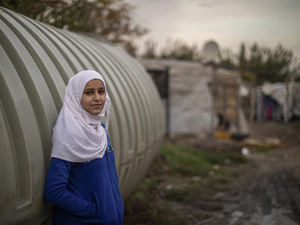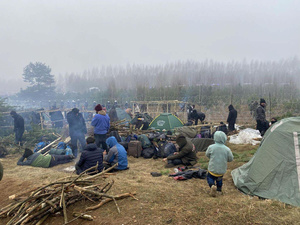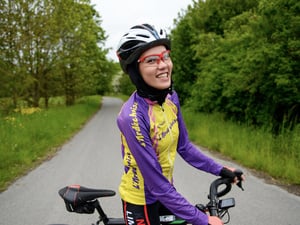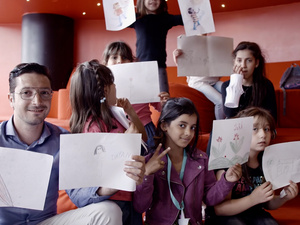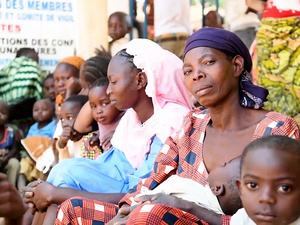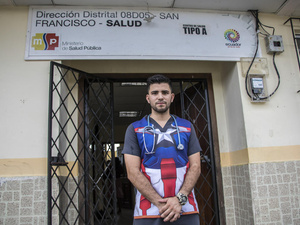Bangladesh: a quiet volunteer helps refugee children shoot for the stars
Bangladesh: a quiet volunteer helps refugee children shoot for the stars

Basketball coach Pero (centre, with beard) gives hope to his Muslim refugee friends in Bangladesh that they can accomplish much in life - on and off the court.
COX'S BAZAR, Bangladesh, June 8 (UNHCR) - When children in the two refugee camps near here speak of their role models, Bollywood stars and Italian football players take a back seat to a tall, quiet and unassuming man they know as Pero.
Petar Ristic, nicknamed Pero, accompanied his partner, UNHCR staffer Olivera Markovic, on her assignment to Bangladesh last year where she is helping resettle Muslim refugees from Myanmar to countries such as Australia, Canada and the United Kingdom.
A former member of the junior national basketball team of the former Yugoslavia and a children's basketball coach for 10 years, Pero was taken aback to see the lack of education and dearth of other opportunities available to refugee children - especially girls and the disabled - in the camps in Bangladesh. But he knew he had the experience to help them.
"Children in my country needed special attention after the war," the 40-year-old recalls. "By playing organized sports, they learnt important life skills like working together and respecting each other. The refugee children in Bangladesh also needed help in overcoming some of the frustrations of living in camps."
Muslim refugees from Myanmar have been living in the two camps of Nayapara and Kutupalong in Bangladesh for up to 18 years. Children make up more than half of the 28,000 residents.
But Pero could not have imagined how his efforts would snowball. Starting as a volunteer and working with 25 children a year ago, he is now teaching table tennis, volleyball, basketball and football to 700 girls and boys of all ages, including disabled children.
Technical Assistance Incorporated, a local NGO hired him, built a basketball court, bought more sports equipment to meet the increasing demand, and began organizing football tournaments with the help of a South Korean sports initiative known as the "Peace Dream Cup."
Unusual in this conservative society, some parents have begun allowing their daughters to participate in sports activities. Inter-camp football matches have a huge fan following among young and old alike. Not to be left out, the camp police can sometimes be found kicking a football with the children. And increasingly, the sports field also provides a safe place for children to discuss their problems with each other and with UNHCR.
"Sport gives us a positive perspective" says Mohammed Salam, a 15-year old refugee who was born in Kutupalong camp. "Pero is inspiring all of us."
"Living in a refugee camp their whole lives has not been easy for the children," says Pia Prytz Phiri, UNHCR's representative in Bangladesh. "They want to go to school, play with their friends, and be protected against violence. They dream of becoming doctors, nurses and teachers. Pero is starting to help them realize that they can shoot for the stars."
Sport is one of the many activities that UNHCR and its partners in Bangladesh have recently initiated with help of the refugee in the camps. The national education system was recently introduced by UNICEF and child protection activities are also being strengthened.
UNHCR is building new shelters and improving livelihood activities in the camps as well. While conditions remain below international standards, these initiatives are providing renewed hope to the refugees in Bangladesh.
Pero's fan, 15-year-old Mohammed Salam has no doubt of the value of the basketball coach's contributions. "Before sports activities started in the camps, we were idle," he says, adding: "I hope to continue playing basketball and even go to college one day"
By Arjun Jain In Cox's Bazar, Bangladesh


